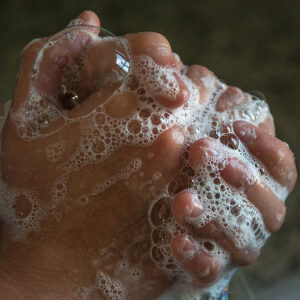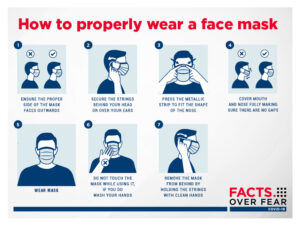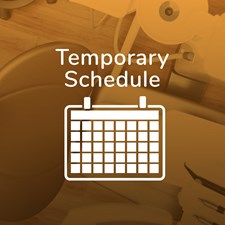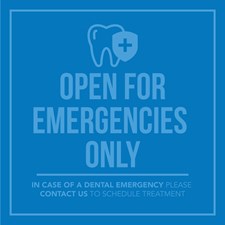
CORONAVIRUS IS AFFECTING all of our lives right now as we work together to slow the spread of the virus, keep everyone safe, and stay positive. Unfortunately, there’s also a lot of misinformation going around, and we want to make sure our patients are well-informed.
Symptoms and Testing
The main symptoms of COVID-19 are fever, shortness of breath, a dry cough, and sometimes tiredness. Don’t confuse it with seasonal allergies, which mostly involve congestion, itchy throat, and sneezing, or the flu, which involves vomiting, diarrhea, runny nose, coughing, sore throat, aches, and fatigue. Until tests for COVID-19 are widely available, only people exhibiting the typical COVID-19 symptoms should seek testing.
The number of confirmed cases is likely to go up as more tests become available. Higher numbers might seem alarming, but remember that it won’t represent an increase in the number of people who have COVID-19, it will represent an increase in the number of people who have been tested, which is a big step in the right direction. The more information we have about who has the virus, the easier it will be to contain and ultimately treat it.
Social Distancing and Protecting At-Risk Demographics
Why are we being encouraged to avoid large gatherings and work from home if possible? Coronavirus spreads person-to-person through close contact and when an infected person coughs or sneezes and germs get on their hands or surfaces other people touch. Elderly people and those with respiratory problems or compromised immune systems are especially vulnerable, and the best way to protect them is by following social distancing recommendations.
Hand-Washing and the Power of Soap
Because there is currently no vaccine for COVID-19, washing our hands frequently is one of the best ways that we can slow the spread of the virus. Thanks to simple chemistry, regular soap is a highly effective weapon against coronavirus. These microscopic germs have a fatty layer that holds them together, and when the fatty layer comes in contact with soap, it breaks apart and the virus is destroyed.
This is why washing our hands is so effective. We should make sure to take at least 20 seconds and get every surface, then dry our hands thoroughly. Hand sanitizer with 60% or more alcohol content is a decent (but less effective) substitute. It’s also important to avoid touching our faces as much as possible.
Cleaning and Disinfecting Surfaces
Washing our hands is great, but it’s even better if we can clean the germs off the things we touch. We should be disinfecting our electronic devices and the surfaces in our homes and workspaces. Don’t forget doorknobs and light switches! Soap and water, alcohol-based cleaners, or bleach are all good options, but vinegar hasn’t been shown to be effective in this case. Make sure to give those surfaces a good scrub, not just a single swipe!
Getting Information from the Best Sources
As healthcare professionals, our top priority is ensuring that our patients have the best information in times like these, particularly with such a serious subject where the situation is changing rapidly. To learn more about the coronavirus and what you can do to help slow the spread, go to the CDC’s website. In the meantime, remember that taking good care of your teeth and gums is just as important now as ever!
Stay safe and happy. We look forward to seeing you soon!







 Website Powered by Sesame 24-7™
Website Powered by Sesame 24-7™
